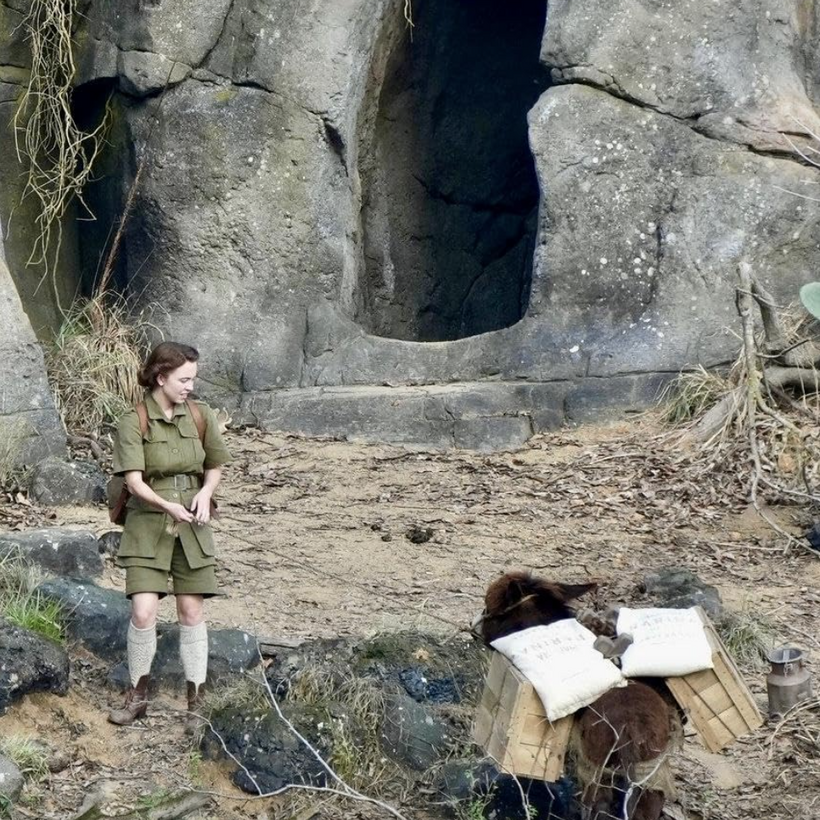Dr. Friedrich Ritter was in the throes of an agonizing death, his limbs rigid, his tongue too swollen to speak. He had come to Floreana, in the Galápagos Islands, four years earlier, in 1929, to find paradise. Now he sat upright with an ecstatic expression and reached out toward his companion, Dore Strauch. “I could only gaze and gaze upon him as one who sees a miracle,” Strauch wrote in her 1936 memoir, Satan Came to Eden. Ritter fell back onto the pillows and died.
Margret Wittmer, their neighbor on the island, had a rather different take on Ritter’s final moments. “Hearing [Strauch’s] voice, he sat up, looking like a ghost as he tried to pounce on her,” she wrote in her 1960 memoir, Floreana. Ron Howard’s Eden, which premieres at the Toronto International Film Festival today, considers both interpretations. The dark comedy-thriller, which is inspired by the true story, stars Jude Law as Ritter, Vanessa Kirby as Strauch, Sydney Sweeney as Wittmer, and Daniel Brühl as her husband, Heinz.

